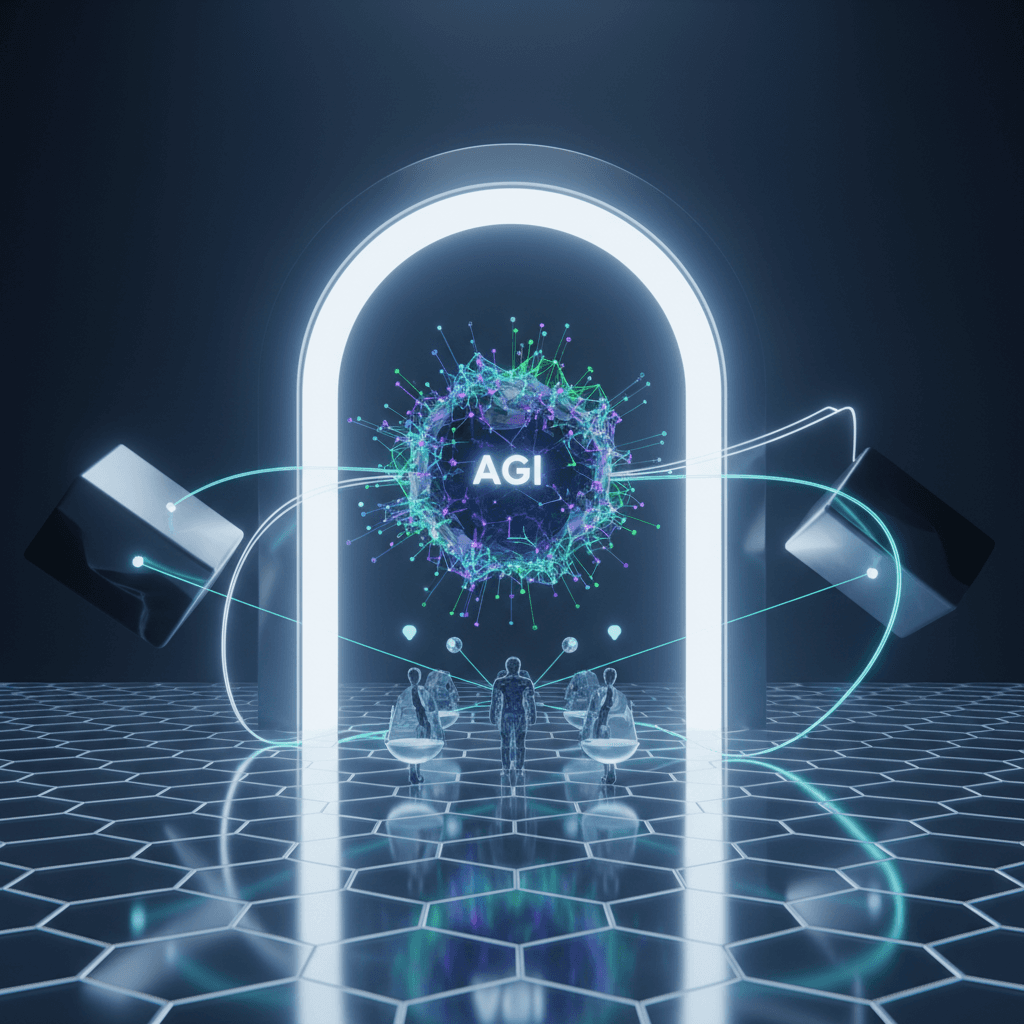Microsoft, OpenAI Redefine AGI's Arrival with Independent Expert Verification
Their new AGI framework shifts declaration power to independent experts, securing Microsoft's access and setting an industry precedent.
November 1, 2025

In a move that redefines the finish line in the race toward human-level artificial intelligence, Microsoft and its key partner OpenAI have established their own framework for declaring the arrival of artificial general intelligence (AGI). The two technology giants have formalized a new agreement that moves the power to make that critical determination from OpenAI's sole discretion to a system of third-party verification, a significant shift with profound implications for the AI industry's future. This new arrangement replaces a previous understanding that could have severed Microsoft's access to OpenAI's cutting-edge technology at the very moment it became most powerful, a risk the software giant was keen to mitigate.
The core of the new pact, solidified in a definitive agreement, centers on how AGI will be recognized. Previously, the terms of their partnership gave OpenAI's board the exclusive authority to declare it had created AGI, a scenario that created considerable uncertainty for Microsoft, which has invested billions of dollars into the AI research company.[1][2] Under the revised terms, while OpenAI can still make the initial declaration, it must be validated by an independent panel of experts.[3][1][4][5][6] This change addresses Microsoft's concerns about being abruptly cut off from future advancements and ensures its intellectual property rights to OpenAI's models and products are extended through 2032, even covering post-AGI models.[3][1][4][5] This strategic realignment provides Microsoft with long-term stability and a continued central role in the development and deployment of what could be the most transformative technology of the century.
This formalization follows earlier reports of a more commercially focused internal definition of AGI between the two companies. Leaked documents and sources had previously indicated that the partners had agreed to a financial benchmark, defining AGI as an AI system capable of generating at least $100 billion in profits.[7] This profit-driven metric was seen as a pragmatic, if unconventional, way to define the milestone from a business perspective, effectively ensuring Microsoft's continued access to OpenAI's technology for a considerable time, as OpenAI is not projected to reach such profitability for several years.[7] The introduction of the independent expert panel in the new definitive agreement, however, signals a move toward a more technically rigorous and externally validated definition, though the precise criteria for this panel's evaluation remain unspecified. This shift from a purely financial trigger to a formal verification process illustrates the maturation of the partnership and the increasing stakes involved.
The implications of this self-determined AGI framework extend far beyond the two companies. By setting their own rules for what is arguably the most significant technological milestone in human history, Microsoft and OpenAI are establishing a precedent that could influence the entire AI sector. The new agreement also grants both companies greater flexibility.[1][8] Microsoft is now explicitly permitted to pursue its own AGI development, independently or with other partners, a significant change from previous restrictions.[9][5] Similarly, OpenAI gains more freedom to collaborate with third parties on product development and can even release open-weight models, provided they meet certain capability and safety criteria.[9] This "strategic uncoupling," as some analysts have termed it, creates a new balance of power, fostering both continued collaboration and independent innovation within the bounds of their redefined relationship.
In conclusion, the decision by Microsoft and OpenAI to establish a formal, independently verified process for declaring AGI marks a pivotal moment in the governance of artificial intelligence. It represents a pragmatic solution to a complex partnership, securing Microsoft's massive investment while providing OpenAI with continued resources and a degree of autonomy. While questions remain about the composition and criteria of the expert panel, this move firmly places the power to define a world-changing technology in the hands of its creators. The structure of this agreement will undoubtedly be scrutinized by regulators and competitors alike, as it sets a powerful example for how the development of AGI may be managed, measured, and ultimately controlled in the years to come.
Sources
[2]
[4]
[5]
[7]
[8]